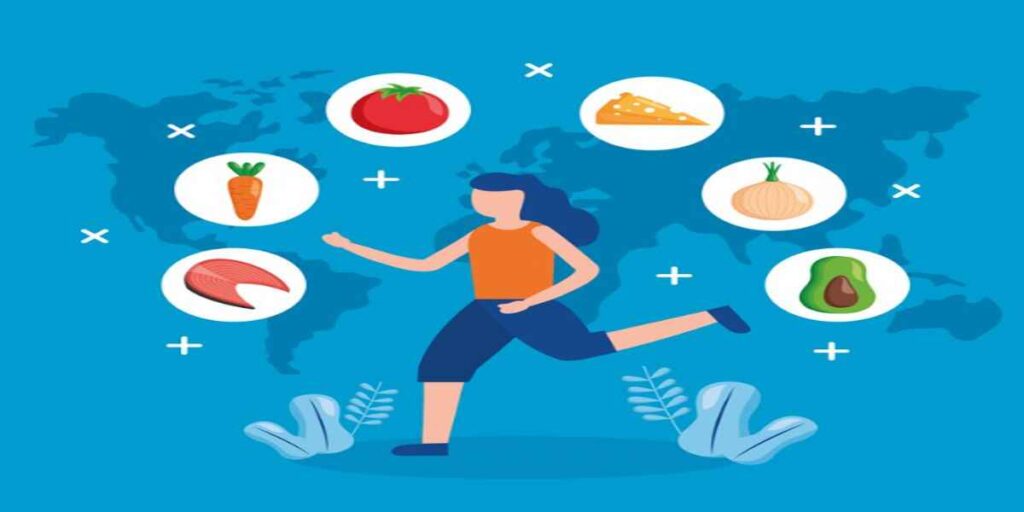Carbohydrates serve as the body’s primary source of energy, making them a crucial component of any fitness-focused diet. Here’s a breakdown of how to incorporate essential carbohydrates for optimal fitness:
Starting the day with whole-grain cereal:
Kickstart your mornings with a bowl of whole-grain cereal to provide your body with complex carbohydrates. These carbohydrates release energy slowly, offering a sustained fuel source throughout your day. Look for cereals with minimal added sugars to keep your breakfast both nutritious and energizing.
Incorporating sweet potatoes for sustained energy:
Sweet potatoes are a nutritional powerhouse, rich in complex carbohydrates, fiber, and essential vitamins. They provide a steady release of energy, making them an ideal choice for a pre-workout meal. Whether baked, mashed, or roasted, sweet potatoes can be a versatile and tasty addition to your fitness-focused diet.
By prioritizing whole-grain cereals and sweet potatoes, you ensure a well-rounded intake of carbohydrates that supports sustained energy levels and aids in optimizing your fitness performance. Integrating these choices into your daily meals contributes to a balanced and effective nutrition strategy for your fitness journey. Stay tuned as we delve into the next crucial element of a fitness-focused diet – protein-packed choices for muscle building.
Protein-Packed Choices for Muscle Building

Protein is the cornerstone of muscle repair and growth, making it an essential component of any fitness-oriented nutrition plan. Let’s explore protein-packed choices that can elevate your muscle-building efforts:
Optimal protein sources like grilled chicken and black bean burgers:
Grilled chicken is a lean and versatile protein source that is low in fat and high in quality protein. Whether marinated, seasoned, or prepared with a simple salt and pepper rub, grilled chicken provides the amino acids necessary for muscle repair and growth.
For those opting for a plant-based approach, the black bean burger offers a protein-packed alternative. Black beans are not only rich in protein but also provide fiber and various essential nutrients. This plant-based option can be just as satisfying and muscle-nourishing as traditional animal protein sources.
Highlighting the benefits of salmon in fitness nutrition:
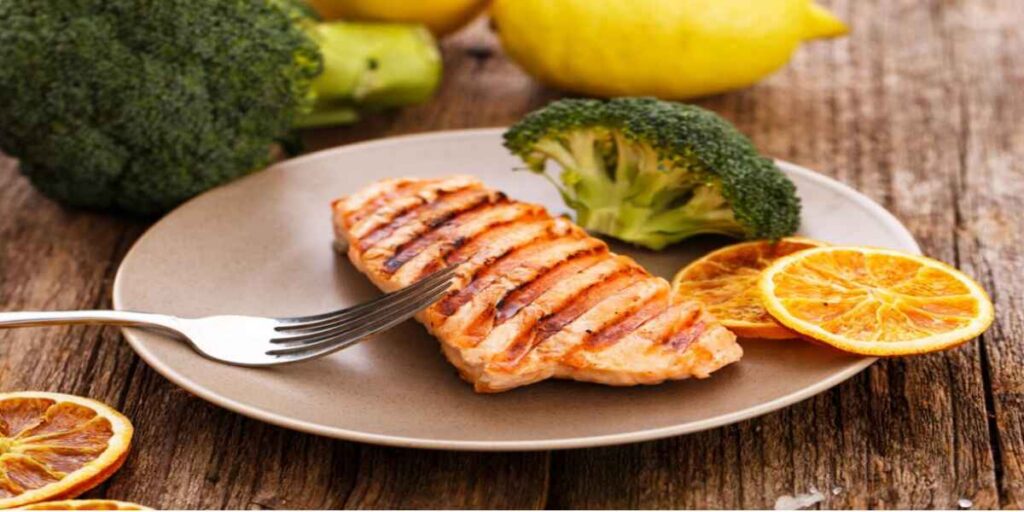
Salmon, a fatty fish, is a nutritional powerhouse containing omega-3 fatty acids and high-quality protein. These omega-3s play a vital role in reducing inflammation and supporting overall joint health, which is crucial for individuals engaged in regular physical activity.
Incorporating these protein-rich choices into your meals ensures that your body receives the necessary building blocks for muscle repair and growth. Whether you choose lean options like grilled chicken or embrace the nutritional diversity of a black bean burger and salmon, these protein-packed choices contribute to a well-rounded and effective fitness nutrition plan. Stay tuned for the next section, where we’ll explore the importance of balancing your diet with healthy fats.
Balancing with Healthy Fats
While carbohydrates and proteins are essential, it’s crucial not to overlook the role of healthy fats in a well-rounded, fitness-focused diet. Here’s why and how you should balance your intake of fats:
Choosing healthy fats in the form of nuts and nut butter:
Nuts, such as almonds, walnuts, and pistachios, are excellent sources of healthy fats, including monounsaturated and polyunsaturated fats. These fats contribute to heart health and provide a dense source of energy. Nut butter, whether it’s almond, peanut, or cashew butter, is another delicious way to incorporate healthy fats into your diet. Spread it on whole-grain toast or add a dollop to your smoothie for a satisfying and nutrient-rich boost.
Emphasizing the role of healthy fats in a fitness diet:
Healthy fats are vital for various bodily functions, including hormone production and the absorption of fat-soluble vitamins (A, D, E, and K). In a fitness context, they can provide a concentrated source of energy, especially during endurance activities. Striking the right balance between carbohydrates, proteins, and healthy fats ensures sustained energy levels, optimal nutrient absorption, and overall well-being.
By incorporating a variety of nuts and nut butter into your meals, you not only enhance the flavor and texture but also contribute to the overall success of your fitness journey. Up next, we’ll explore the power of fruits and vegetables in providing essential vitamins, minerals, and antioxidants for peak performance.
Fruit and Vegetable Power
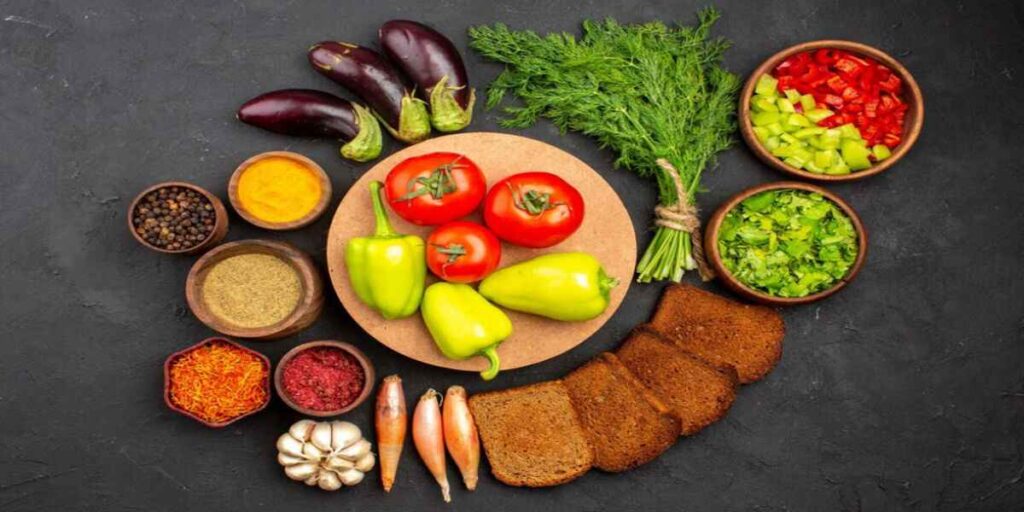
In the quest for fitness, the inclusion of a vibrant array of fruits and vegetables is not just about meeting your vitamin and mineral needs; it’s about optimizing your performance and recovery. Let’s delve into the significance of berries, bananas, tomatoes, and oranges in your fitness-focused diet:
The significance of berries:
Berries, such as blueberries, strawberries, and raspberries, are rich in antioxidants. These compounds play a crucial role in reducing the oxidative stress induced by intense physical activity. Additionally, the natural sugars in berries provide a quick energy boost, making them an excellent choice for pre or post-workout snacks.
Bananas as a quick and portable energy source:
Bananas are nature’s convenient energy bar, providing a quick source of natural sugars (fructose and glucose) along with essential electrolytes like potassium. This makes them an ideal snack to consume before or after exercise, helping replenish glycogen stores and prevent muscle cramps.
Tomatoes for hydration and antioxidants:
Tomatoes are not only a tasty addition to meals but also contribute to hydration due to their high water content. Moreover, they contain antioxidants like lycopene, known for its anti-inflammatory properties, supporting overall recovery after exercise.
Oranges for vitamin C and immune support:
Oranges, packed with vitamin C, play a crucial role in collagen formation and immune function. Engaging in regular physical activity can temporarily suppress the immune system, and incorporating oranges into your diet aids in maintaining robust immunity.
By incorporating a colorful variety of fruits and vegetables, you provide your body with essential nutrients that support overall health, aid recovery, and enhance your fitness performance. Stay with us as we explore the next section, which focuses on the importance of hydration for peak exercise performance.
Hydration and Performance
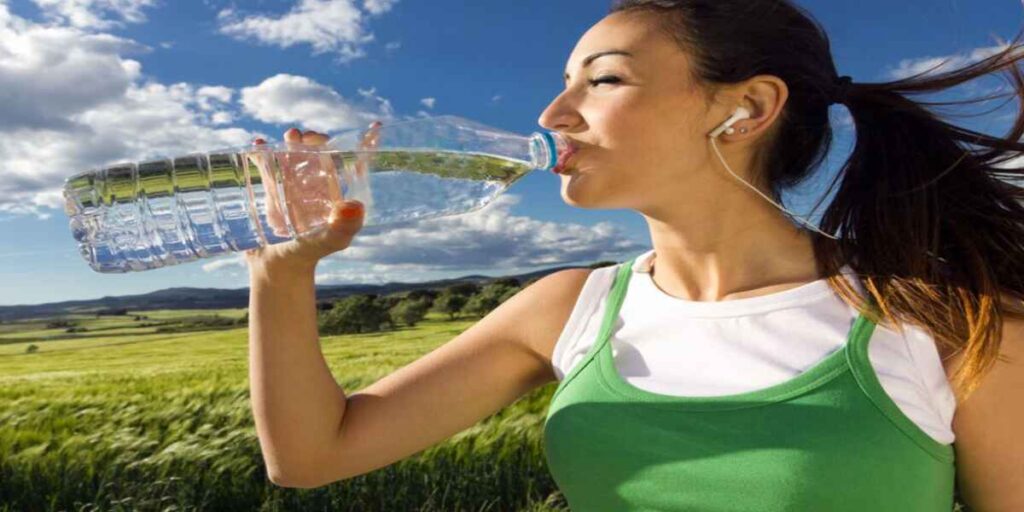
Hydration is a cornerstone of optimal performance during exercise, and choosing the right fluids can significantly impact your fitness journey. Let’s delve into the importance of water and sports drinks in maintaining peak hydration levels:
The importance of water and sports drinks in fitness:
Staying adequately hydrated is paramount for sustaining energy levels, regulating body temperature, and supporting overall performance during exercise. Water is the most fundamental component, keeping you hydrated without any added calories or sugars. It’s essential to consume water consistently throughout the day, especially before, during, and after your workout.
Sports drinks, on the other hand, can be beneficial during more prolonged and intense physical activities. They contain electrolytes like sodium and potassium, helping replenish the minerals lost through sweat. Additionally, the carbohydrates in sports drinks provide a quick source of energy, making them suitable for endurance activities lasting longer than an hour.
Tips for proper hydration before and during exercise:
- Pre-hydration: Ensure you are well-hydrated before starting your exercise routine. Aim to drink at least 16-20 ounces of water 2-3 hours before exercise.
- During exercise: consume about 7–10 ounces of water every 10–20 minutes during your workout. For more extended or intense sessions, consider incorporating a sports drink to replenish electrolytes.
Maintaining optimal hydration levels is not only crucial for physical performance but also supports overall well-being. As we move forward, we’ll explore the benefits of dried fruits and energy bars, providing convenient and energy-boosting options for your fitness journey. Stay tuned for more insights on crafting the ideal fitness-focused diet.
dry fruits and Energy Bars
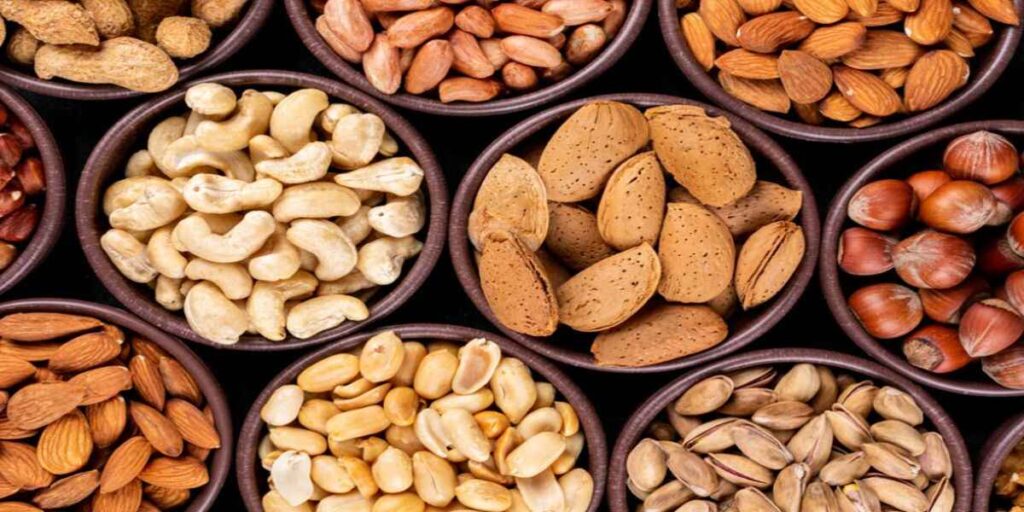
When it comes to convenient and energy-boosting snacks for fitness enthusiasts, dried fruits and energy bars stand out as practical choices. Let’s explore the benefits of incorporating these options into your fitness-focused diet:
Dried fruits as a convenient and energy-boosting snack:
Dried fruits, such as apricots, raisins, and dates, pack a concentrated dose of natural sugars, fiber, and essential vitamins. They serve as a quick and easily portable snack, providing a burst of energy during workouts or as a midday pick-me-up. While enjoying dried fruits, it’s essential to be mindful of portion sizes due to their condensed nature.
The role of energy bars in sustaining energy throughout the day:
Energy bars are designed to deliver a balanced combination of carbohydrates, proteins, and healthy fats in a convenient package. They offer a quick and practical solution for individuals with busy lifestyles or those needing a pre-packaged option before hitting the gym. When selecting energy bars, opt for those with minimal added sugars and ingredients that align with your nutritional goals.
By incorporating dried fruits and energy bars into your diet, you introduce convenient and accessible sources of energy that complement your fitness routine. These options can be particularly useful during periods of increased activity or when you need a portable and efficient snack. In the next section, we will explore the fitness benefits of cow’s milk and discover recipes that incorporate this dairy powerhouse into your nutrition plan. Stay tuned for more insights on crafting a well-rounded, fitness-focused diet.
Fitness Benefits of Cow’s Milk
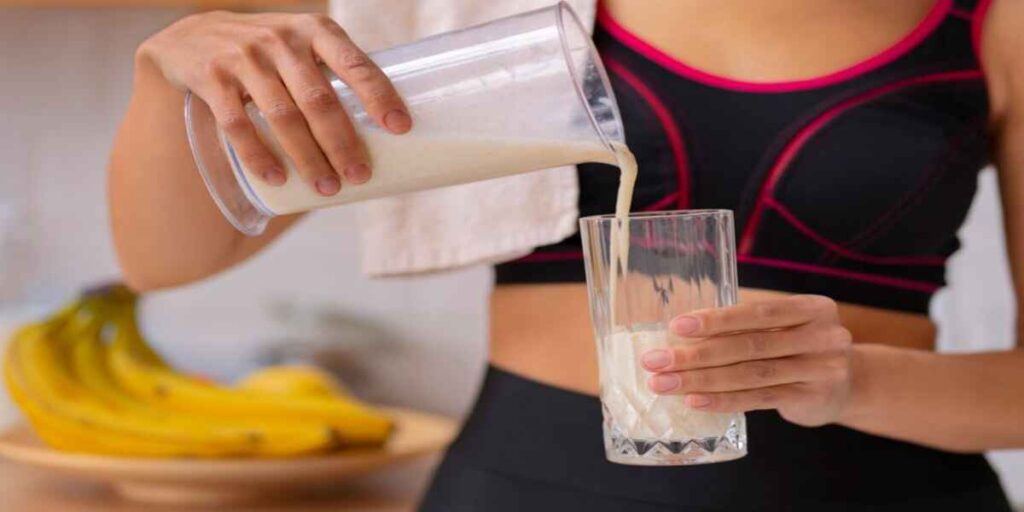
Cow’s milk has long been recognized as a nutritional powerhouse, offering an array of benefits that support overall health and fitness. Let’s delve into the fitness benefits of incorporating cow’s milk into your diet, along with some delightful recipes to elevate your nutrition plan:
Fitness Benefits:
- High-Quality Protein: Cow’s milk is an excellent source of complete protein, containing all essential amino acids necessary for muscle repair and growth. This makes it a valuable addition to the diet of individuals engaged in regular physical activity.
- Calcium for Bone Health: Adequate calcium intake is vital for maintaining strong and healthy bones, especially for those involved in weight-bearing exercises. Cow’s milk is a rich source of calcium, which contributes to bone density and overall skeletal health.
- Hydration and Electrolytes: Cow’s milk is composed of approximately 90% water, aiding in hydration. It also contains essential electrolytes like potassium, magnesium, and sodium, promoting proper fluid balance in the body.
Recipes to try:
- Protein-Packed Smoothie:
- Ingredients: cow’s milk, banana, berries, and a scoop of protein powder.
- Blend together for a delicious and protein-rich smoothie, perfect as a pre or post-workout snack.
- Overnight Oats with Milk:
- Ingredients: Rolled oats, cow’s milk, yogurt, and your choice of toppings (nuts, fruits, or seeds).
- Combine the ingredients in a jar and refrigerate overnight for a nutritious and convenient breakfast.
- Milk and Honey Yogurt Parfait:
- Layer cow’s milk yogurt with honey and granola for a tasty and protein-packed dessert or snack.
Incorporating cow’s milk into your fitness-focused diet provides a versatile and nutrient-dense option to support your overall well-being. Whether enjoyed in a refreshing smoothie or as a base for overnight oats, cow’s milk can be a delicious and valuable addition to your nutrition plan. Stay tuned as we continue to explore more fitness-friendly foods and strategies for crafting the ideal diet for your active lifestyle.
Nutrient-Rich Superfoods
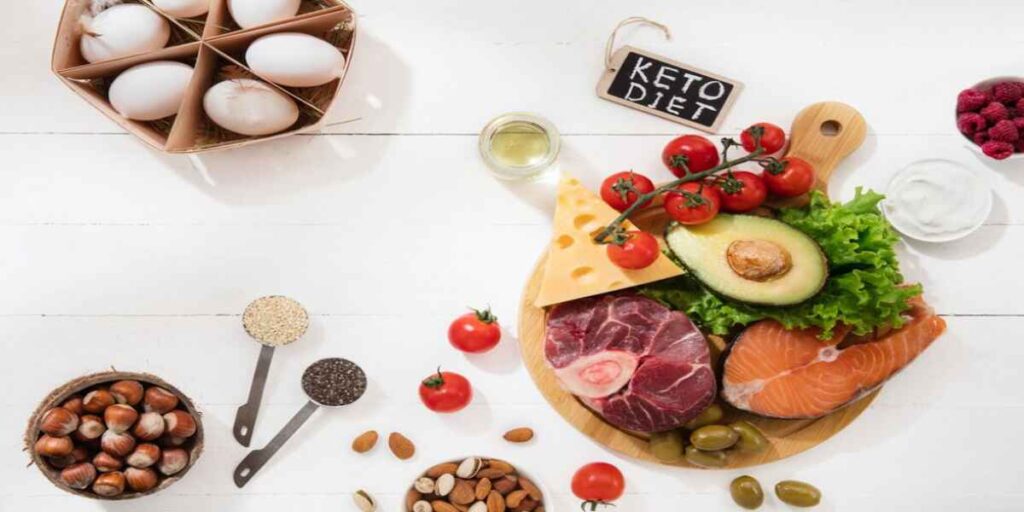
To enhance your fitness journey, consider incorporating nutrient-rich superfoods into your diet. These foods offer a concentrated dose of essential vitamins, minerals, and antioxidants. Let’s explore the fitness benefits and some recipes to try for the following superfoods:
Incorporating Brazil nuts for selenium and antioxidants:
Brazil nuts are an excellent source of selenium, a mineral crucial for maintaining a healthy immune system and supporting thyroid function. Additionally, they contain antioxidants that help combat oxidative stress. Enjoy a handful of Brazil nuts as a snack or incorporate them into your morning yogurt or oatmeal.
Blueberries for antioxidants and anti-inflammatory properties:
Blueberries are renowned for their high levels of antioxidants, particularly anthocyanins, which have anti-inflammatory properties. These berries can aid in reducing muscle soreness and inflammation post-exercise. Add blueberries to your smoothies, or yogurt, or enjoy them as a refreshing snack.
Salmon for omega-3 fatty acids and protein:
Salmon is a powerhouse of omega-3 fatty acids, essential for heart health and reducing inflammation. The high-quality protein in salmon also supports muscle repair and growth. Include grilled or baked salmon in your meals for a delicious and nutrient-packed protein source.
Recipes to try:
- Brazil Nut Trail Mix:
- Combine Brazil nuts with almonds, dried fruits, and a sprinkle of dark chocolate for a satisfying and energy-boosting trail mix.
- Blueberry Spinach Salad:
- Toss fresh blueberries with spinach, walnuts, and feta cheese for a nutrient-rich and flavorful salad.
- Grilled Salmon with Lemon and Herbs:
- Marinate salmon with lemon, garlic, and your favorite herbs before grilling for a tasty and protein-rich main course.
By incorporating these nutrient-rich superfoods into your diet, you not only enhance the nutritional profile of your meals but also support overall health and fitness. Stay tuned for the final section, where we’ll sum up key strategies for crafting an optimal fitness-focused diet, ensuring you’re well-equipped for your active lifestyle.
Strategies for Optimal Fitness and Nutrition
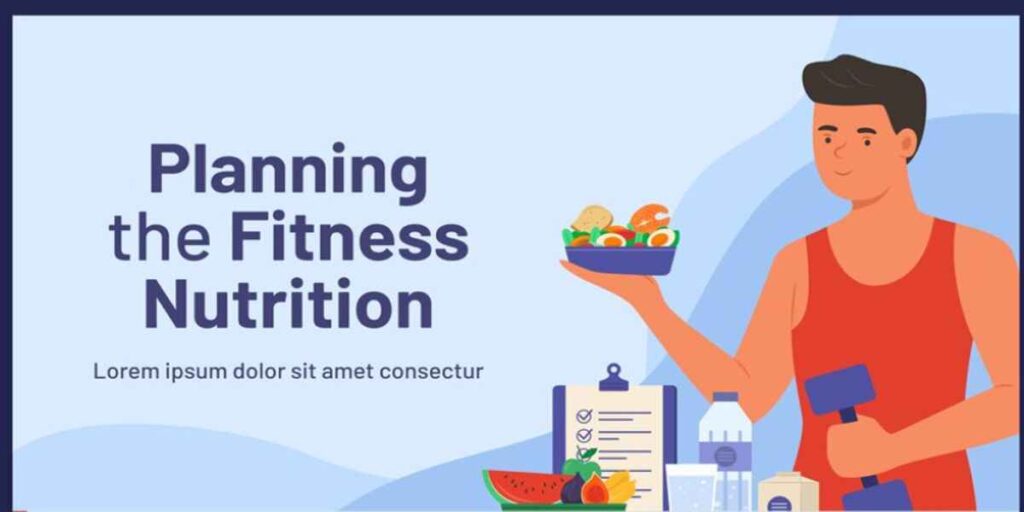
As we near the conclusion of our exploration into the best foods for fitness, let’s consolidate key strategies that will empower you to craft an optimal nutrition plan aligned with your active lifestyle:
Balancing Macronutrients:
Ensure a well-rounded intake of macronutrients—carbohydrates, proteins, and fats. The right balance supports energy levels, muscle repair, and overall performance. Incorporate complex carbohydrates, lean proteins, and healthy fats into each meal.
Diversifying Fruits and Vegetables:
Embrace a colorful variety of fruits and vegetables to maximize your intake of vitamins, minerals, and antioxidants. Aim to consume a rainbow of produce to ensure a broad spectrum of nutrients essential for recovery and overall health.
Prioritizing Hydration:
Maintain optimal hydration by drinking water consistently throughout the day. Tailor your fluid intake based on your activity level, opting for water as the primary source and incorporating sports drinks during more extended or intense workouts.
Snacking Smartly:
Choose nutrient-dense snacks like dried fruits and energy bars to keep your energy levels steady throughout the day. Be mindful of portion sizes, and consider these snacks as supplements to your well-balanced meals.
Incorporating Dairy Powerhouse:
Include cow’s milk in your diet for its high-quality protein, calcium, and hydration benefits. Experiment with recipes like protein-packed smoothies, overnight oats, or yogurt parfaits to enjoy the fitness advantages of this dairy powerhouse.
Exploring Superfoods:
Integrate nutrient-rich superfoods like Brazil nuts, blueberries, and salmon into your meals for their unique health benefits. Experiment with diverse recipes to make these superfoods a flavorful and integral part of your fitness-focused diet.
By implementing these strategies, you create a comprehensive and sustainable approach to nutrition that complements your fitness goals. Remember, the key is not just in individual food choices but in the synergy of a well-balanced and diverse diet. Tailor these strategies to fit your preferences and lifestyle, ensuring that your nutrition plan aligns seamlessly with your active journey. As you embark on this path, may your meals fuel not only your body but also your determination to lead a healthier, fitter life.
Conclusion
The path to optimal fitness nutrition is paved with mindful choices that fuel both body and ambition. From the foundational trio of carbohydrates, proteins, and fats to the vibrant spectrum of fruits and vegetables, each element contributes to a holistic and effective nutrition plan. Hydration emerges as a non-negotiable ally, and strategically chosen snacks, such as dried fruits and energy bars, provide the necessary boosts throughout the day. The inclusion of dairy, superfoods, and a judicious mix of culinary creativity enriches the journey. As you embark on this nutritional expedition, remember that the most enduring changes arise from sustainable habits. May these insights guide you towards a balanced and purposeful diet, enhancing not just your fitness performance but your overall well-being on the road to a healthier, fitter you.
